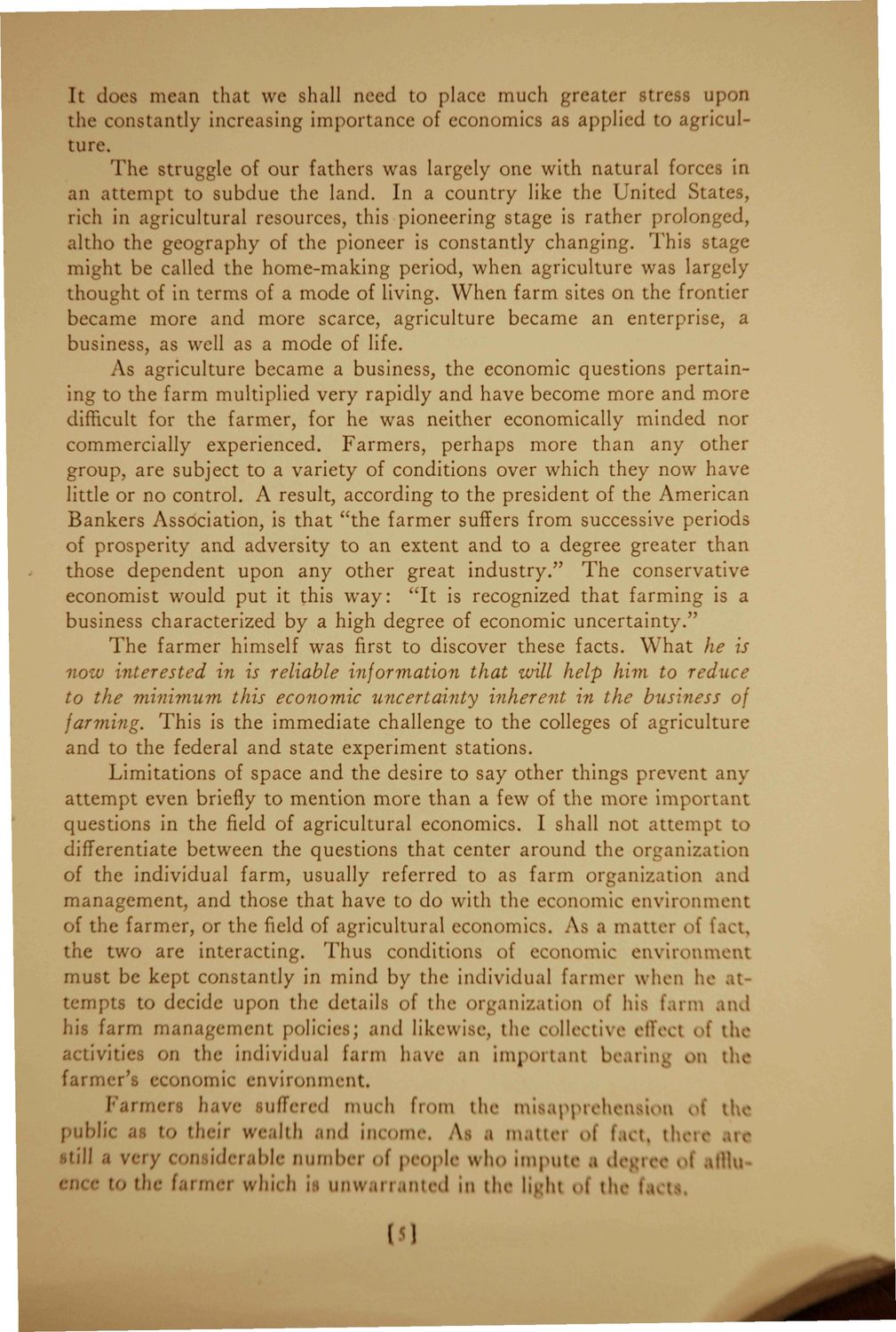| |
| |
Caption: Booklet - Agricultural College and Experiment Station (1924)
This is a reduced-resolution page image for fast online browsing.

EXTRACTED TEXT FROM PAGE:
It does n: in that we shall need to place much greater stress upon the constantly increasing importance of economics as applied to agriculture. The struggle of our fathers was largely one with natural forces in an attempt to subdue the land. In a country like the United States, rich in agricultural resources, this pioneering stage is rather prolonged, altho the geography of the pioneer is constantly changing. This stage might be called the home-making period, when agriculture was largely thought of in terms of a mode of living. When farm sites on the frontier became more and more scarce, agriculture became an enterprise, a business, as well as a mode of life. As agriculture became a business, the economic questions pertaining to the farm multiplied very rapidly and have become more and more difficult for the farmer, for he was neither economically minded nor commercially experienced. Farmers, perhaps more than any other group, are subject to a variety of conditions over which they now have little or no control. A result, according to the president of the American Bankers Association, is that "the farmer suffers from successive periods of prosperity and adversity to an extent and to a degree greater than those dependent upon any other great industry." The conservative economist would put it this way: "It is recognized that farming is a business characterized by a high degree of economic uncertainty." The farmer himself was first to discover these facts. What he is now interested in is reliable information that will help him to reduce to the minimum this economic uncertainty inherent in the business of far?ni?ig. This is the immediate challenge to the colleges of agriculture and to the federal and state experiment stations. Limitations of space and the desire to say other things prevent any attempt even briefly to mention more than a few of the more important questions in the field of agricultural economics. I shall not attempt to differentiate between the questions that center around the organization of the individual farm, usually referred to as farm organization and management, and those that have to do with the economic environment of the farmer, or the field of agricultural economics. As a matter of fact, the two are interacting. Thus conditions of economic environment must be kept constantly in mind by the individual farmer when he attempts to decide upon the details of the organization of his farm and his farm management policies; and likewise, the collective effect of tlu activities on the individual faun have an important I aring on the farmer's economic environment I irmers have SlifFei I much from the misapprehension of t! public -8 to their wealth and income. As a matlei ol 1 I. the .'ill vny Considerable number of people who impute a degi dlu m tO 'he farmei whieh is unw.m.mt I in the light o! th>
| |